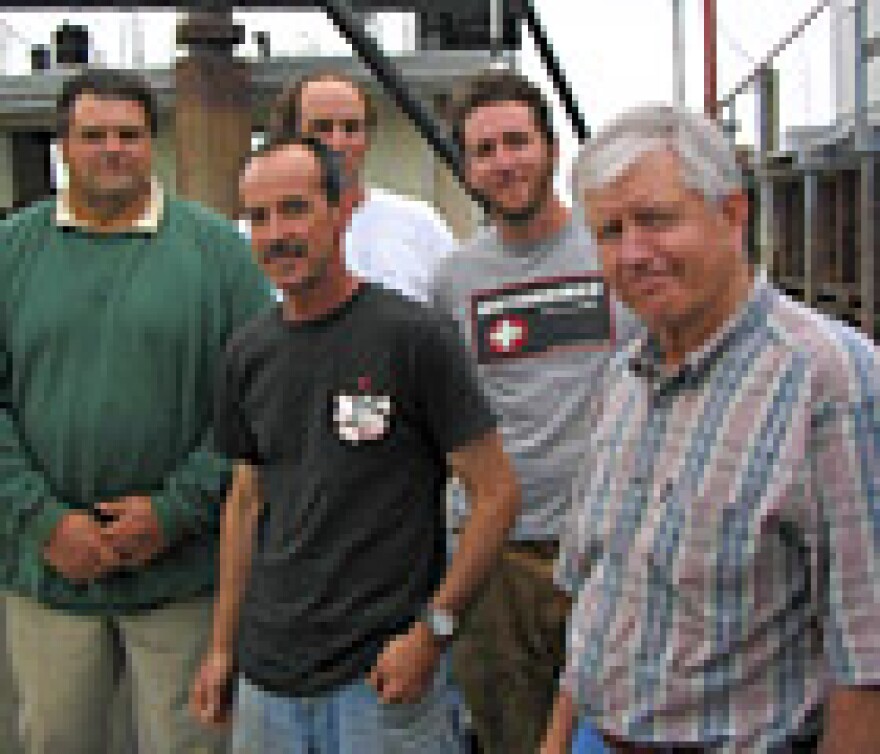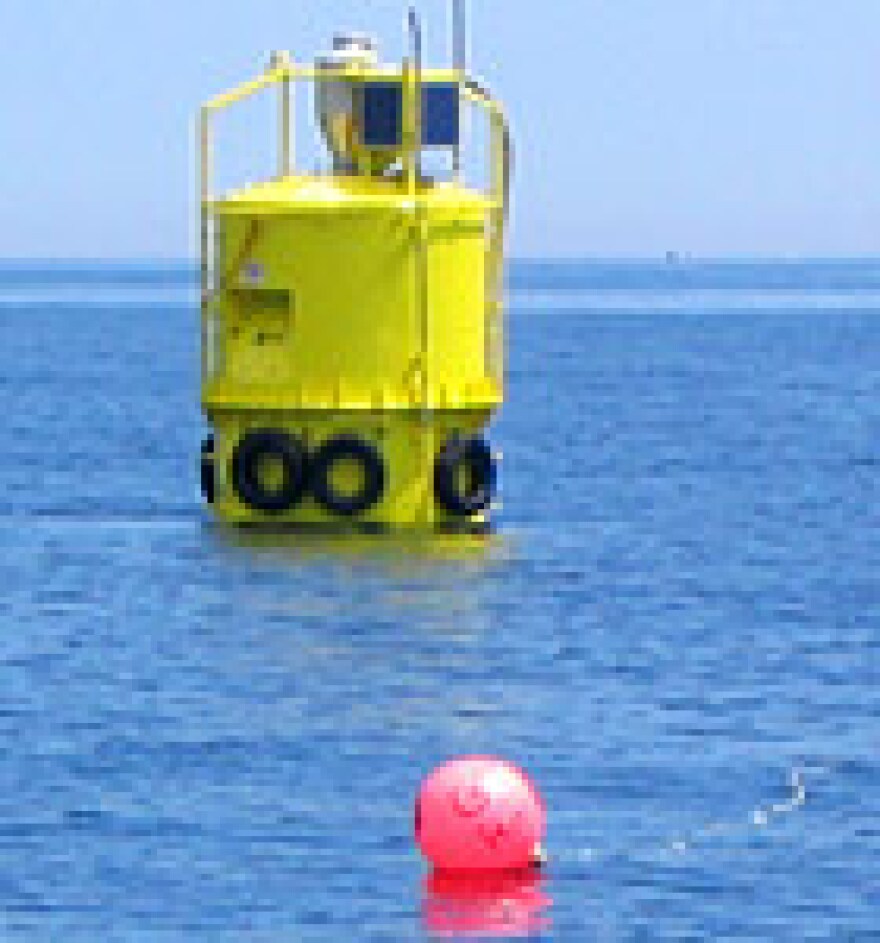


People around the world are eating a lot more fish -- global consumption doubled in a recent 25-year period, to more than 90 million tons.
Some 30 percent of the seafood eaten in the United States this year will come from "aquaculture" farms, most of them in Asia. But now several universities are working with the U.S. government to improve fish farming practices -- and tap into a billion-dollar industry in which the United States lags its competitors.
In a two-part series, NPR's Chris Arnold reports on researchers' environmental goals and their efforts to ease the impact a shift to aquaculture would have on fishermen.
University of New Hampshire professor Richard Langan directs one such project, raising fish six miles off the coast. That distance is crucial, say advocates of aquaculture. By placing large fish-farm cages in water that's 180 feet deep -- and miles away from shore -- researchers hope to improve the efficiency and lessen the environmental impact of fish farms.
But that environmental impact is a leading cause of concern for groups like Environmental Defense. Becky Goldburg, a scientist with the group, says the problem with aquaculture is that many of the larger, more lucrative fish to sell are predators, such as cod, halibut and salmon. Even farmed predators eat other fish -- which Goldburg says puts pressure on the ecosystem.
Professor Langan and his colleagues say their plan reduces the amount of fish consumed, by closely monitoring the feeding tendencies of the fish in captivity. They also contend that the larger volume of water -- and distance from shore -- aid in diluting pollutants from the farm, which include nutrients and fecal matter.
As the National Oceanic and Atmospheric Administration makes plans for permits that would allow companies to run open-ocean aquaculture farms, NPR's Chris Arnold discusses aquaculture with its supporters and critics.
Copyright 2022 NPR. To see more, visit https://www.npr.org.


